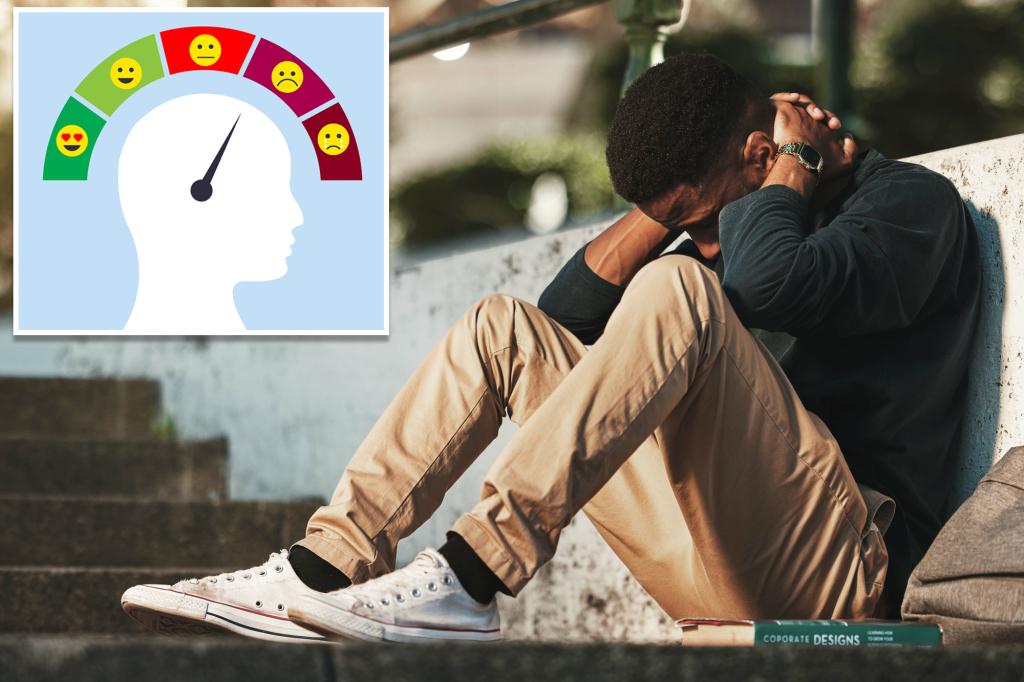People born in the 1990s have the worst mental health of any generation before them — and millennials aren’t recovering as they age, a new study shows.
Researchers at the University of Sydney found that there has been a significant decline in mental wellbeing with each successive generation since the 1950s.
The results show that mental health challenges not only affect younger generations more seriously but affect every generation growing into old age, according to a study published Tuesday in the Proceedings of the National Academy of Sciences.
“Most of the focus to date has been on the decline in mental health of school children and adolescents, where we expect their mental health to eventually improve as they enter adulthood. But this study shows these patterns are changing and it’s not just children we need to worry about,” lead author Dr Richard Morris, senior research fellow at the University of Sydney’s Faculty of Medicine and Health, said in a statement.
“Our data not only shows a continued decline in the mental health of the current young crop but continues to affect today’s older generation heading into their 40s and 50s. We’re not seeing the recovery from young adulthood that previous generations saw as they got older.”
 The results show that mental health challenges not only affect the younger generation more seriously but affect every generation growing into old age. Allistair F/peopleimages.com – stock.adobe.com
The results show that mental health challenges not only affect the younger generation more seriously but affect every generation growing into old age. Allistair F/peopleimages.com – stock.adobe.com
The study was launched in an attempt to unravel the mystery of why Australians’ mental health has declined since around 2010 — and whether it’s an effect only seen in the “post-millennial cohort” or is an indicator of a more permanent, worrying trend.
Researchers tracked changes in the mental health of more than 27,500 Australians from 2001 to 2020, assessing each age group over the time period.
The youngest generation suffers from the worst mental deficiencies, the study found.
And the mental health of people born in the 1990s does not improve as they age, unlike older generations.
 Researchers tracked changes in the mental health of more than 27,500 Australians from 2001 to 2020, assessing each age group over the time period. nanzeeba – stock.adobe.com
Researchers tracked changes in the mental health of more than 27,500 Australians from 2001 to 2020, assessing each age group over the time period. nanzeeba – stock.adobe.com
“Population-level trends in mental health have been declining in developed countries over the years, particularly among young people,” the study said.
“Findings from this study highlight that Millennials’ poorer mental health is driving significant declines in population-level mental health.”
Researchers point to social media as a major driver of the nation’s deteriorating mental health.
Experts have long blamed social platforms and excessive screen time as a source of increased anxiety, depression and addiction in the younger generation, as well as an increase in emotional abuse, toxic relationships and the sexualization of adolescents.
The study also theorized climate change could play a big role in undermining the expectations of the younger generation, as well as an overall lack of physical activity, poor sleep and changing work habits.
It fails to take into account how increased public awareness of mental health and reduced stigma may have impacted the survey results.
While it’s unclear how the trend will continue as Gen Z and Gen Alpha mature, researchers at the University of Sydney aren’t optimistic.
“This represents important evidence that decline in mental health among young adults may not be expected to recover or disappear spontaneously,” they said in a statement.
The research team hopes to use the data as a launching point to identify the root causes of young people’s mental distress and stop the trend before it can get any worse.
Categories: Trending
Source: thtrangdai.edu.vn/en/



